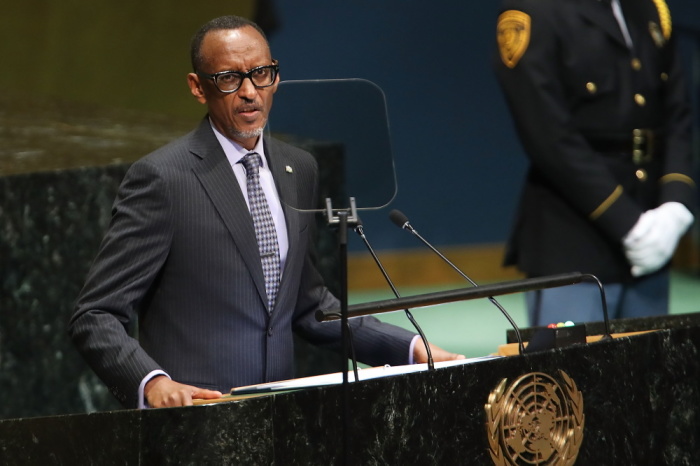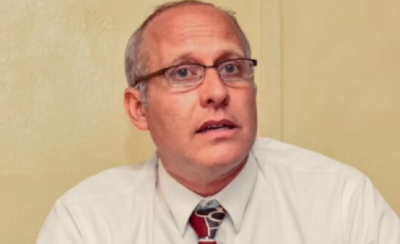US missionary deported after accusing Rwandan government of ‘heathen practices’

The Rev. Gregg Schoof, an outspoken American missionary who was arrested Monday in Rwanda where he ran a conservative evangelical church and radio station, has been deported after accusing the government of taking a “stand against God with its heathen practices.”
Citing a statement from the Rwandan Directorate General for Immigration and Emigration, Rwanda’s leading daily newspaper, The New Times, said Schoof was deported after he was declared a "prohibited immigrant."
"Gregory Schoof Brian has been deported and sent back to his country as a prohibited immigrant," Regis Gatarayiha, the director-general of Emigration and Immigration told The New Times.
Schoof was arrested in Kigali, the country’s capital, on Monday before he could hold a news conference to denounce the Rwandan government for clamping down on churches, The New York Times reported.
Prior to his deportation on Monday, Schoof and his family had been serving in Rwanda for just over 16 years. He and other outspoken evangelical pastors have been criticizing the Rwandan government for allowing access to abortion and birth control as well as teaching evolution.
Last year however, the government revoked the license for his Amazing Grace Christian Radio and shut down his church and recently refused to renew visas for Schoof and his family.
In a statement, posted on Twitter, Rwandan officials said the license for Schoof’s station was revoked “after this station failed to comply with #RURA’s sanctions taken after a sermon aired by the radio on January 29, 2018 in which a radio presenter repeatedly insulted women referring to them as evil.”

“I did not come here to fight the government. I came to preach the Gospel,” Schoof said in a prepared statement Monday. “But this government has taken a stand against God with its heathen practices.”
Rwanda’s president, Paul Kagame, said last year that he was shocked by the high number of churches in his East African nation and has been pursuing a crackdown in an effort to exert more control, the Associated Press reported.
"700 churches in Kigali?” he said of houses of worship in the nation’s capital in March. “Are these boreholes (deep wells) that give people water? I don’t think we have as many boreholes. Do we even have as many factories? This has been a mess!”
Most of the churches that have been closed, the AP said, were small Pentecostal prayer houses in which preachers spread the controversial prosperity gospel to impoverished followers.
New legislation was also introduced requiring pastors to have a minimum of a degree in theology or any related field in order to preach the Gospel.
Rev. Charles Mugisha, Chancellor of African College Theology and the Pastor of New Life Bible Church in Rwanda said the new government policy on pastors was helpful and churches should respect it.
“It is a great achievement to have pastors, preachers graduated in religious and leadership-related courses. Now we are able to participate in the government plan to educate church leaders. Churches should have well equipped and competent leaders,” Mugisha told The New Times.
Brandon Barnard, teaching pastor at Fellowship Bible Church in the U.S., also supported the move.
“Rwanda is strong and growing quickly. Having well equipped church leaders and preachers will make the country stronger. Also, the development will strengthen the church in the country in the way of serving the people as they support poor and live in peace,” he told the publication.
Twenty-five years ago, on April 7, 1994, the dominant Hutus of Rwanda turned with well-planned violence on the Tutsi minority, whom they held to be traitors. Nearly one million people, most of them Tutsis were killed in 100 days.




























